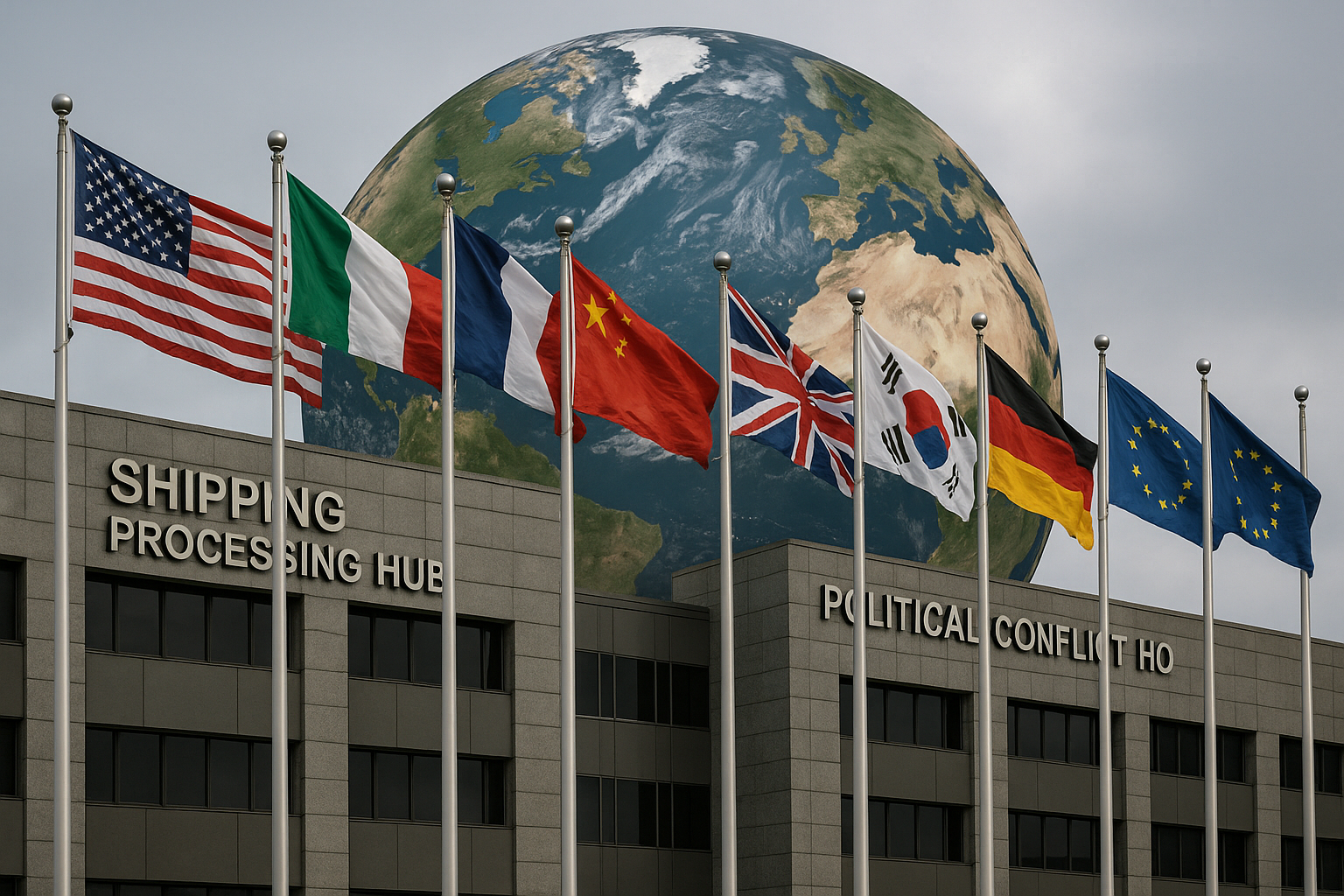Globalization shifts to fragmentation as geopolitics shapes commerce
The esults highlight a paradox of globalization’s recent trajectory: aggregate trade volumes remained resilient in the face of political fragmentation because tariff reforms and institutional integration provided countervailing gains. Yet at the country level, many economies have borne significant costs from worsening relations with trading partners.

Geopolitics has emerged as a powerful force reshaping global trade, with political alignments between countries now proving just as influential as traditional tariff policies. A new study submitted on arXiv finds that deteriorating political relations can cut trade flows by nearly a fifth, even when tariffs remain unchanged.
Titled “Geopolitical Barriers to Globalization”, the paper develops a novel measure of bilateral political alignment based on over 800,000 recorded international events from 1950 to 2024. By combining this new dataset with modern trade models, the authors provide one of the clearest empirical pictures yet of how political fragmentation is reshaping globalization.
How do geopolitical alignments shape trade?
The research team constructs a bilateral geopolitical alignment score for every country pair, ranging from −1 for conflict to +1 for cooperation. This score is built from 833,485 political events across 193 countries, covering state visits, trade agreements, sanctions, and disputes. The data reveal that about 71 percent of the variation in alignment occurs within the same country pair over time, providing strong evidence that shifts in politics are not just static differences but dynamic forces shaping commerce.
The findings are stark. A one-standard-deviation improvement in political alignment increases bilateral trade by about 20 percent over a ten-year horizon. Importantly, this effect cannot be explained by tariffs alone. Since the 1990s, tariff levels have been largely insulated by global trade rules under the GATT and WTO. Instead, political tensions manifest through informal barriers, such as regulatory scrutiny, supply chain shifts, and risk premiums, that gradually reduce trade volumes.
In descriptive analyses, the study shows that changes in political alignment tend to precede trade shifts by roughly three years, underscoring the predictive power of political ties in anticipating future trade flows.
What has been the global impact of geopolitical fragmentation?
To quantify broader effects, the authors apply their alignment score to a general equilibrium model of world trade and welfare. Their results suggest that geopolitical deterioration since the mid-1990s has reduced global trade by around seven percentage points. This negative effect has partly offset the gains from tariff liberalization and other improvements, which contributed roughly 19 points to trade growth over the same period.
The welfare implications are uneven. While 94.6 percent of countries gained from tariff liberalization, with average welfare increasing by 1.23 percent, only 36 percent of countries benefited from recent geopolitical realignment. On average, welfare fell by 0.57 percent due to worsening political relations, with losses concentrated in nations caught between major powers. The United Kingdom, for instance, gained substantially from tariff reductions but lost ground due to political misalignment.
These results highlight a paradox of globalization’s recent trajectory: aggregate trade volumes remained resilient in the face of political fragmentation because tariff reforms and institutional integration provided countervailing gains. Yet at the country level, many economies have borne significant costs from worsening relations with trading partners.
Are geopolitical forces redefining globalization?
The study’s historical perspective highlights three distinct eras. During the Cold War, geopolitical alignments were polarized but trade volumes remained constrained by systemic divisions. The subsequent hyper-globalization era of the 1990s and early 2000s saw a dramatic rise in both political alignment and global trade integration. Since the 2010s, however, the global landscape has shifted again. The average trade-weighted alignment score peaked in the early 2000s and has since declined, reaching around 0.28 by 2020, signaling a broader phase of fragmentation.
The authors argue that geopolitics now rivals traditional trade policy as a determinant of commerce. Unlike tariffs, which can be negotiated and reduced within formal institutions, geopolitical alignments are harder to manage. Informal barriers, sanctions, and supply-chain reconfigurations emerge as political ties deteriorate, leaving governments and firms exposed to shocks beyond their control.
The study calls for new lines of inquiry into how geopolitical alignment interacts with investment flows, technology transfers, and financial integration. Firm-level studies, analyses within deep trade blocs such as the European Union, and forward-looking models of political realignment are highlighted as crucial areas for future research.
- FIRST PUBLISHED IN:
- Devdiscourse










